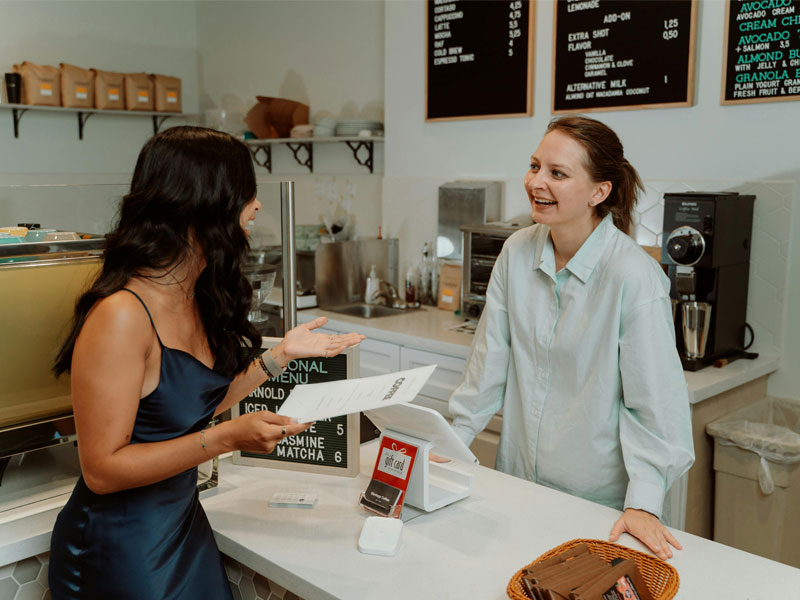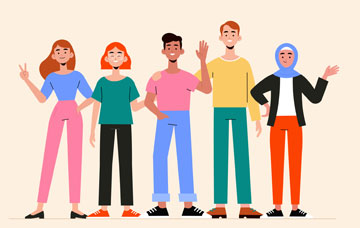Which gender wins war on waste?
Published April 08th, 2020

We recently conducted a survey among our Cafestudy members to find out their thoughts on the issue of excess waste in Australia. As well as looking at attitudes, we wanted to find out what, if anything, people are doing to help reduce the problem.
The following charts illustrate what are seen by our panel as the main causes of excess waste, and what is being done to reduce it.
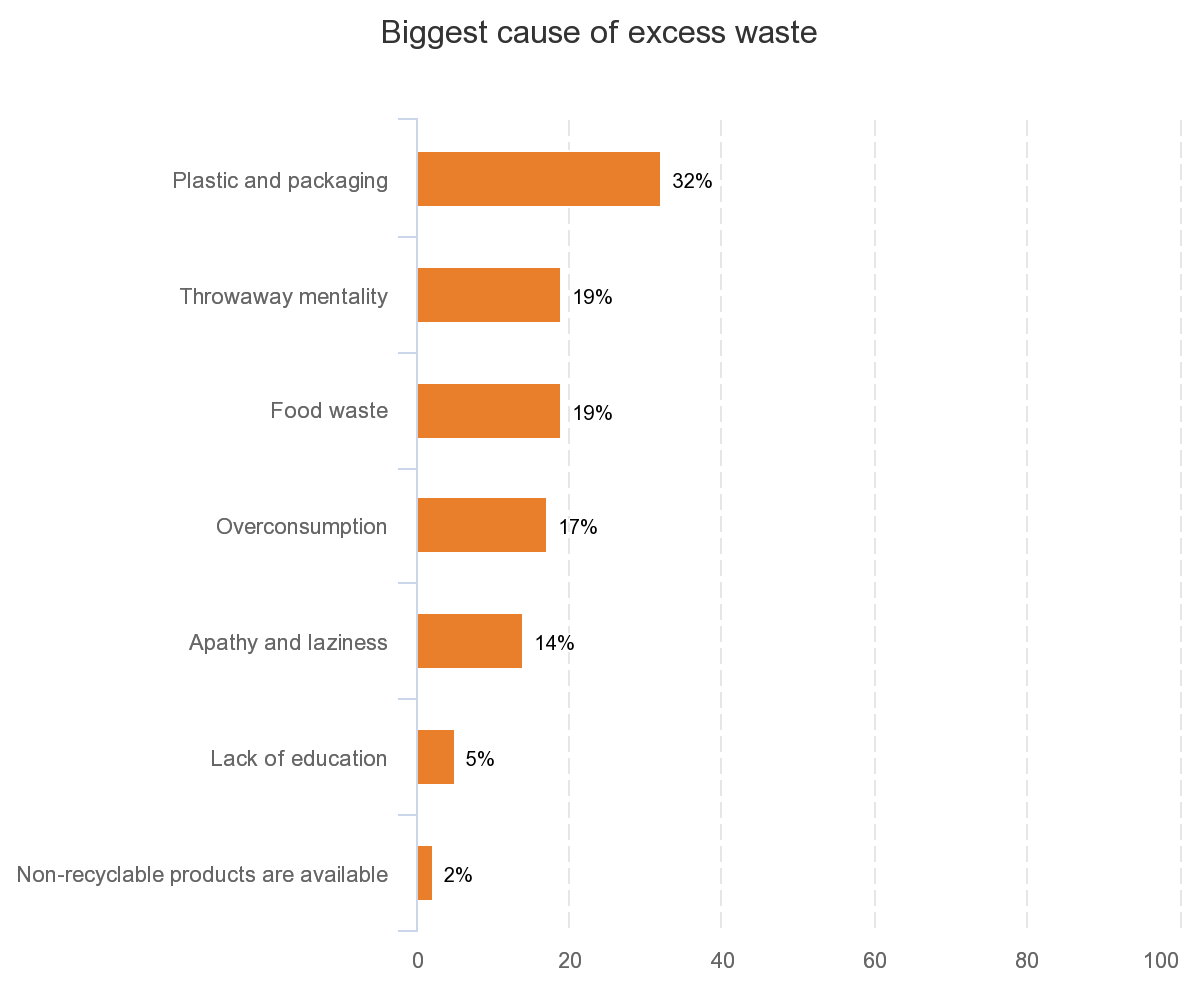
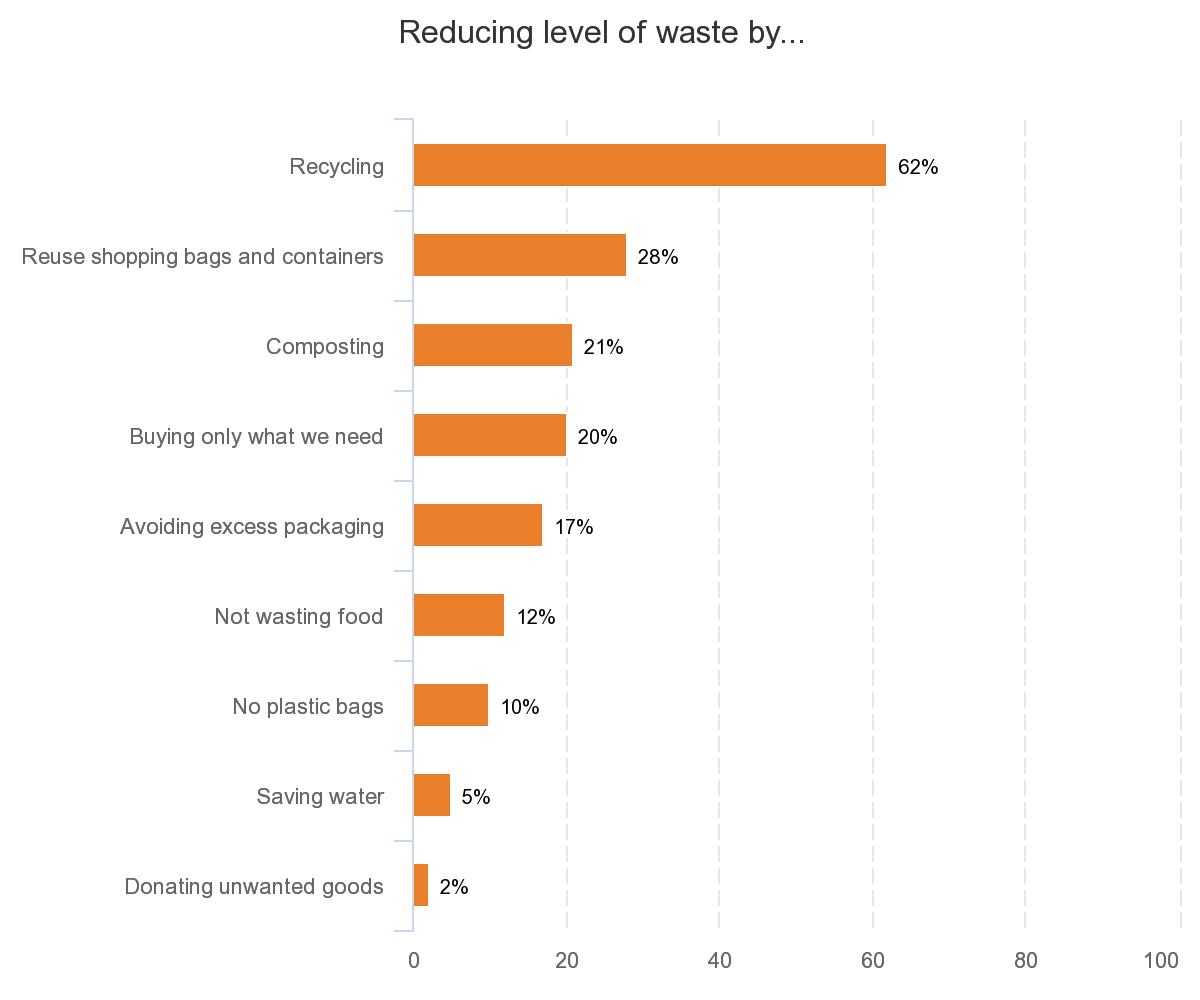
One of the many interesting things to emerge from this study is a stark gender difference. Overall, it seems that women are doing more work than men when it comes to recycling and adopting a proactive approach in trying to reduce household waste.
Recognising the issues
Both genders agree that the top cause of excess waste is plastic and packaging, which includes overpackaging of food in supermarkets, and fast food and takeaway containers. But beyond this, it appears that recognition of the bigger picture is higher among women, whereas men are more likely to blame apathy and laziness.
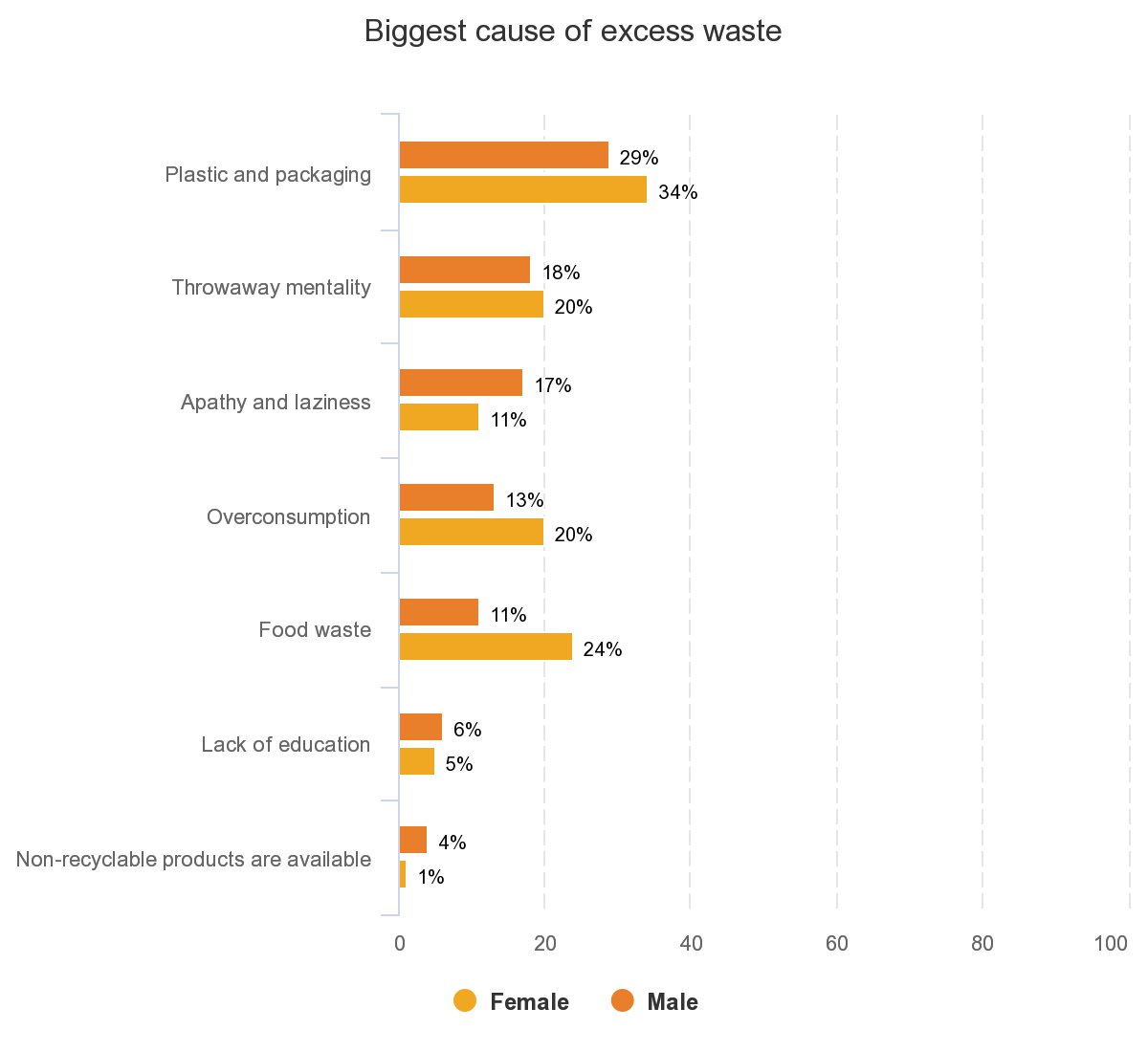
Taking action
So when it comes to taking action, here’s what each gender is doing about it.
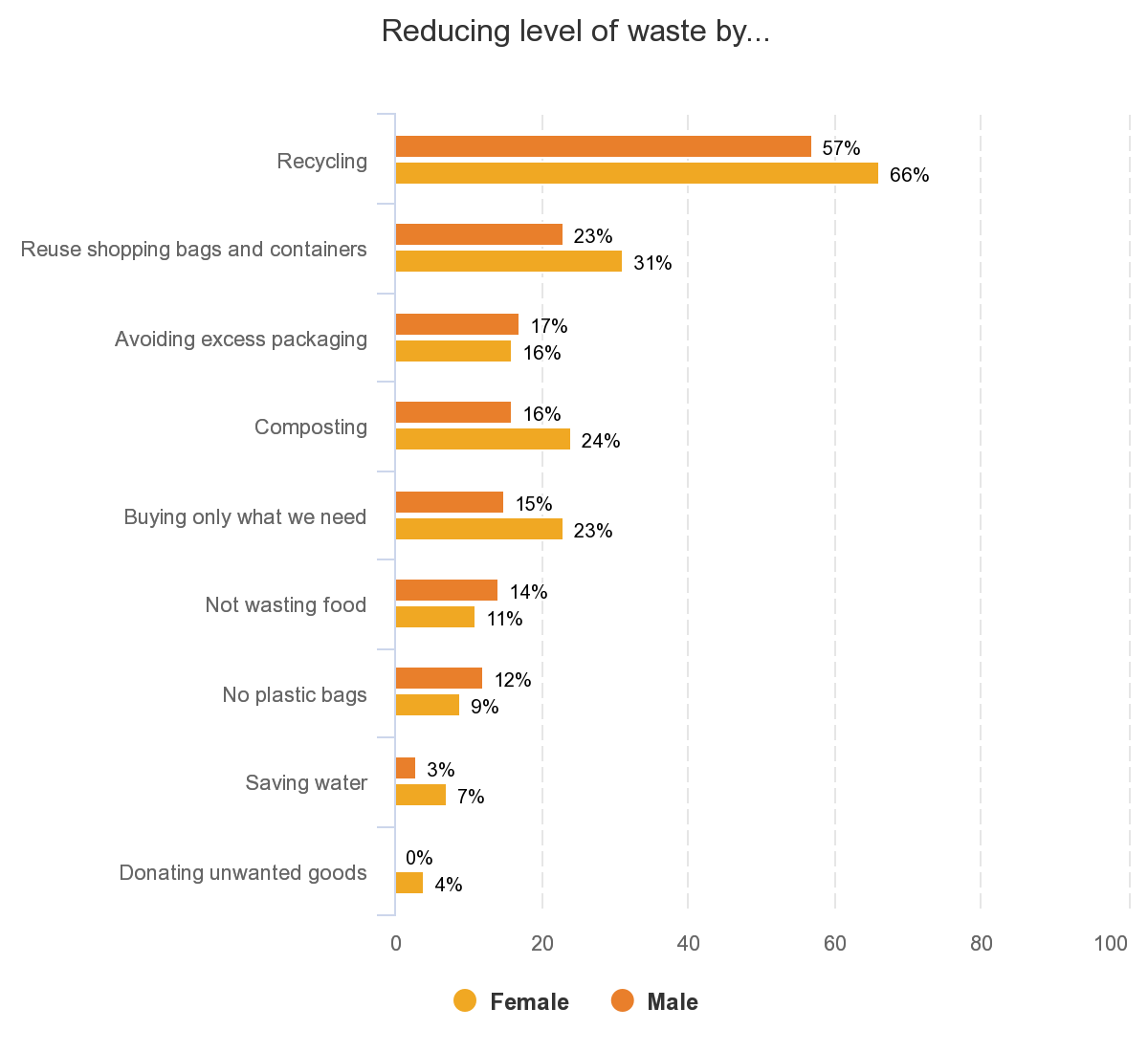
Although recycling is the top activity for both genders, we can see that women are more likely than men to be doing this, as well as more likely to be reusing and composting. Whereas men appear to be more likely to not do things - not wasting food, no plastic bags.
The research highlights some interesting points which help to explain the differences.
When we asked about attitudes to waste, men were significantly more likely than women to agree that ‘I would recycle more if it were easier to do.’ They were also significantly more likely to agree that ‘there is no point trying to reduce waste unless businesses do it.’ They were also less likely to agree that they know exactly what can and can’t be recycled.
In other words, it’s not that men don’t care about environmental issues as much as women do, but that that the ways in which to go about making a difference, and the importance of each individual’s actions are not as clear to them as they are to women.
So what does this mean? Although the good intentions might be there, in order to drive action people need to feel that they need to do something. They also need to feel that their individual contributions are important. And then it needs to be easy for them to do something about it. They need the information which will enable them to easily turn their concerns into action. And this needs to be communicated in a way which resonates with both genders equally – this could mean that communications need to be adapted to each gender in a different way.
Recycling during the age of isolation
One of the positive things to come out of our current situation is that we are starting to see changes already in terms of attitudes to waste and overconsumption. Isolation and the current restrictions are changing habits for the better, with fewer opportunities to buy excess goods. There are already signs that the lowering of human activity globally is having a positive impact on the environment. Perhaps these signs will help to reinforce the message that individual actions do matter.
Perhaps also the Covid-19 era of social isolation provides a good opportunity for messaging to get through, a quieter time where even the busiest and most stubborn will pause and take time to listen, continue to question their consumption habits, and maybe develop new habits that will last a lifetime.
Our latest thinking
AI In Research – What does it mean for Edentify and you?
There is a lot of buzz about AI in the market research industry at the moment. The technology is developing quickly, and it's difficult to keep up with everything that is going on.At Edentify, we have been using AI tools for a number of years. Some are built into our survey platform and you have...
Read moreImprove Your Customer Experience with Voice of the Customer Research
Whether you have an existing VoC program in place, or you are looking to start one, it’s not always easy to know what to do. Here are a few tips to point you in the right direction:1. Ask the Right QuestionsIt all starts with the questions you ask. If you only focus on "How satisfied are...
Read moreVoice of the Customer gives customers a voice. But what questions should we ask them?
There is one topic that is guaranteed to come up in every discussion I have had with a client looking to measure their customer satisfaction: what question should we ask?My answer is usually (like so often in market research): well, it depends.For many years, the common wisdom suggested that Net...
Read moreSample Quality Counts
Good quality sample – making sure you are talking to the right people – is a fundamental of good research. It's the first step in ensuring good quality research and without it, our data is meaningless, or worse, misleading.This is not just an issue when using a research panel –...
Read more

